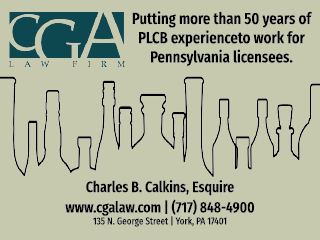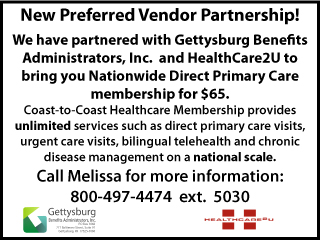PLBTA Testimony: Pa. Senate Democratic Policy Committee Investigates COVID Impact on Taverns, September 4, 2020
 Below is testimony provided by John Nikoloff on behalf of the Pennsylvania Licensed Beverage and Tavern Association to the Pennsylvania Senate Democratic Policy Committee on Friday, September 4. The committee was investigating the impact of state COVID-19 orders on restaurants and taverns. Nikoloff is the PLBTA’s state lobbyist. In addition, he is the founder and partner in PA ERG, a lobbying firm based in Harrisburg.
Below is testimony provided by John Nikoloff on behalf of the Pennsylvania Licensed Beverage and Tavern Association to the Pennsylvania Senate Democratic Policy Committee on Friday, September 4. The committee was investigating the impact of state COVID-19 orders on restaurants and taverns. Nikoloff is the PLBTA’s state lobbyist. In addition, he is the founder and partner in PA ERG, a lobbying firm based in Harrisburg.
Chairman Boscola, members of the Committee, good afternoon. I’m John Nikoloff of ERG Partners representing the Pennsylvania Licensed Beverage and Tavern Association.
Let me begin by thanking you for inviting the Pennsylvania Licensed Beverage and Tavern Association to testify today about the struggles of the industry as a result of the COVID-19 crisis and state orders. We appreciate being here to share the story of our Members and industry.
The Tavern Association represents more than 400 small business taverns, pubs, and licensed restaurants across the state. Most of our Members own “R” and “H” licenses while some may have an “E” or even a club license. For the most part, we are your local bars, taverns, pubs, and licensed restaurants. We do not actively recruit large chains, grocery stores, or convenience stores which have an R license.
In terms of business, our average Member makes a living primarily from alcohol sales. Based on our Membership studies, about 63 percent of their business is alcohol sales and 37% of sales are from food. For what it’s worth, the most popular beer served would be Bud, while the most popular mixed drink would be Jack and Coke.
Our average member employs about 16 individuals including the owner and family members. They serve less than 4,000 customers every month. If you count the chairs and barstools, throughout the Member establishments, you’ll find less than 100.
Simply put, our Members are your locally-owned, mom-and-pop neighborhood businesses.
For the sake of overall industry data, looking at the state list of active R, H and E licenses, there are about 9,400 licensees that are not grocery stores, convenience stores or large chains. These are primarily small businesses.
Knowing that my average Member employs about 16 individuals, Pennsylvania’s small business R, H and E licensees create around 150,000 jobs. And, assuming national industry data is correct, you can anticipate more than half are women, many of whom are single mothers.
This week, we wrapped up a survey of small business licensed restaurants and taverns. Our study clearly shows the struggle these establishments are having, and supports findings we’ve seen from national-level studies.
For example, on average, 13 employees per establishment lost their jobs as a result of COVID-19 Orders. When extrapolated across the industry in Pennsylvania, this likely resulted in the loss of hundreds of thousands of jobs throughout the entire industry. When just considering our small business R and H license locations, the state orders likely resulted in about 109,200 jobs lost.
When you consider our average Member employs 16 individuals, and an average 13 employees lost jobs per establishment – or 81 percent, our survey also supports national studies from earlier in the crisis that estimated 81 percent of industry employees were laid off or furloughed during the crisis.
Our survey also found that without any change in the state’s COVID-19 order, 70 percent of small business licensed restaurants are either closed or facing closing in the upcoming year. In the next month, 5 percent say they will close. Another 29 percent say they will likely close by the end of the year, while 23 percent say they will likely close in 2021.
Small business taverns and licensed restaurants along with their employees need your help. And they need it sooner rather than later.
My Members really want to work at full capacity. They’re not looking for another loan. They want to put people to work and let the public decide whether or not to dine indoors while following all appropriate health and safety measures.
But, since operating at 100 percent is not going to be allowed anytime soon, they have no choice but to seek survival and then recovery help to make up for not being allowed to use their licenses at 100 percent.
With colder months ahead, outdoor seating becomes problematic. The state should allow increased indoor dining using safety protocols.
Other than increased indoor dining, we asked in our survey what could help them the most. They responded as following:
- State Grants for $25,000 for expenses incurred to date (6.48 on a 7.0 scale)
- Forgiveness of license fees and surcharges for 2020-2021 (4.75)
- Conversion of sales taxes collected into grants for your bar/tavern/restaurant (4.45)
- Increase the state wholesale discount from 10-15% (4.35)
- Ability to retain revenues from skill games, VGTs (3.76)
- Elimination of the $50 minimum for wholesale discounts (2.24)
- Ability to purchase spirits and wine on 30 days credit (1.97)
Very clearly, our industry is looking to the legislature to pass survival bills to include grants and license fee forgiveness. An increase in their discount at state stores would be helpful.
We recognize that this is not a partisan issue, and appreciate your support and the legislation proposed by Sens. Brewster and Iovino, Sen. Boscola and others in the last month.
Since March, these small business establishments along with their employees have been on a downward spiral. They need your help, and they need it now.
In March and April, those who remained open were just barely keeping their heads above water when allowed only to offer take-out service. Some didn’t even open, because there was no way to NOT lose money operating on sales of less than 10% of normal.
That’s ten percent of normal, with 100% operational costs in an industry where the profit margin is well below five percent.
My Members thought they were beginning to see the light at the end of the tunnel as each county graduated from Red to Yellow and then to Green. While not the perfect business scenario for the industry, establishments were able to restart outdoor and indoor service with limitations, hiring staff back, generating economic activity, and helping the public begin to feel that we were moving again toward “normal.”
But, it turned out to be false hope. Governor Wolf’s order on July 15 was a setback for every tavern and licensed restaurant in the state – including the good apples who were doing everything right. It closed their bar seating, further limited indoor seating to 25 percent, and required a meal to be ordered with drinks either indoor or outdoor.
And I have to say that our Members’ frustrations have only grown because they have still not – six weeks later – seen any data that even suggests taverns and restaurants operating within the guidelines set by the Governor and Secretary Levine have been responsible for community spread of COVID-19. Instead, the general feeling is that an entire industry is being damaged beyond repair because of the perceived actions of a few bad actors which were not subjected to proper enforcement measures.
Our industry at a tipping point. Our local taverns and licensed restaurants need help if they are going to make it through this crisis and save jobs. We have separately provided a list of various state actions that might provide a lifeline to many of our drowning Members.
Thank you for the opportunity to present this testimony, and I welcome questions.
Pennsylvania Small Business Taverns and Licensed Restaurants Relief
and Recovery Recommendations
- Passage of legislation to provide grants to small business restaurants and taverns to assist with COVID-19-related business losses, and expenses including costs associated with new outdoor seating, educational expenses including trade association memberships, hand sanitizer, staff PPE, indoor separators (plexiglass installation), digital thermometers… etc.
- Elimination of all license fees and surcharges for liquor-related service establishments for two years, provided the establishment had previously allowed on-site consumption.
- Elimination of all small games of chance license fees for R, H, E, and clubs for two years.
- Passage of legislation providing limited civil immunity from liability for bars, taverns and restaurants that attempt, in good faith, to adhere to the provisions of the COVID-19 emergency declaration, the Governor’s 3-16-2020 COVID-19 Business Closure Order or any other executive order relating to COVID-19, or any guidance issued by the Pennsylvania Liquor Control Board, the Department of Health or the Secretary of Health.
- Creation of a Small Business Tavern and Licensed Restaurant Promotion Program coordinated by both the PLCB and the Pennsylvania Licensed Beverage and Tavern Association to equal those financed for the beer, wine and spirits craft industries.
- Create a Liquor Licensee Specialty Council consisting of specialty associations within the industry including taverns, clubs, brew pubs, wineries, and distilleries to build future industry/state government dialogue.
- Permanent acceptance of mixed drinks-to-go as a business practice under the state Liquor Laws.
- To save money from delivery charges, allow licensed establishments the ability to pick up and deliver their own malt beverage orders, like the model followed when ordering spirits through the PLCB.
- Encourage outdoor seating by making the free temporary licensed premise extensions permanent at no additional cost to the licensee.
- Encourage outdoor seating expansion and support the entertainment industry by allowing up to 75 decibels of noise on a property line for all establishments with a liquor license, not just some.
- Modernize the state’s sanitation requirements to require tap cleaning once every 14 days.
- Cap third-party delivery charges for home delivery of meals from all restaurants and taverns.
- Increase discount that licensed establishments receive when purchasing liquor through state stores.
- Eliminate the $50 minimum purchase requirement at state stores in order for a licensed establishment to receive a discount.






